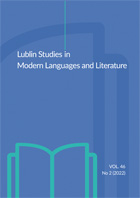The Abrupt Turns in Translation Policies in Latvia during the Occupations (1939-1946)
The Abrupt Turns in Translation Policies in Latvia during the Occupations (1939-1946)
Author(s): Andrejs VeisbergsSubject(s): Cultural history, Political history, Interwar Period (1920 - 1939), WW II and following years (1940 - 1949), Translation Studies
Published by: Wydawnictwo Naukowe Uniwersytetu Marii Curie-Sklodowskiej
Keywords: translation; Latvian; Russian; German; source language; publishers; visibility;
Summary/Abstract: Within the period of changing occupations and ideologies shifts in the translation policies in Latvia were incredibly fast. The independence period saw a developed translation industry with a great variety of source languages, literature and quality. The soviets nationalized the publishers, ideologised the system, introduced censorship. Russian was made the main source language. After the German invasion the publishers regained their printing houses and a partial return to normality occurred. Most of the source texts now were German or Nordic - classics, travel literature and biographies. There were surprisingly few ideologically motivated translations. Most translators left for the West in 1944 when the soviet system was reinstated. The new occupation regime was even more repressive than in 1940/41. During these years Latvian translation agents adapted to the ideological dictum of the times and tried to retain their own agendas.
Journal: Lublin Studies in Modern Languages and Literature
- Issue Year: 46/2022
- Issue No: 2
- Page Range: 123-137
- Page Count: 15
- Language: English

